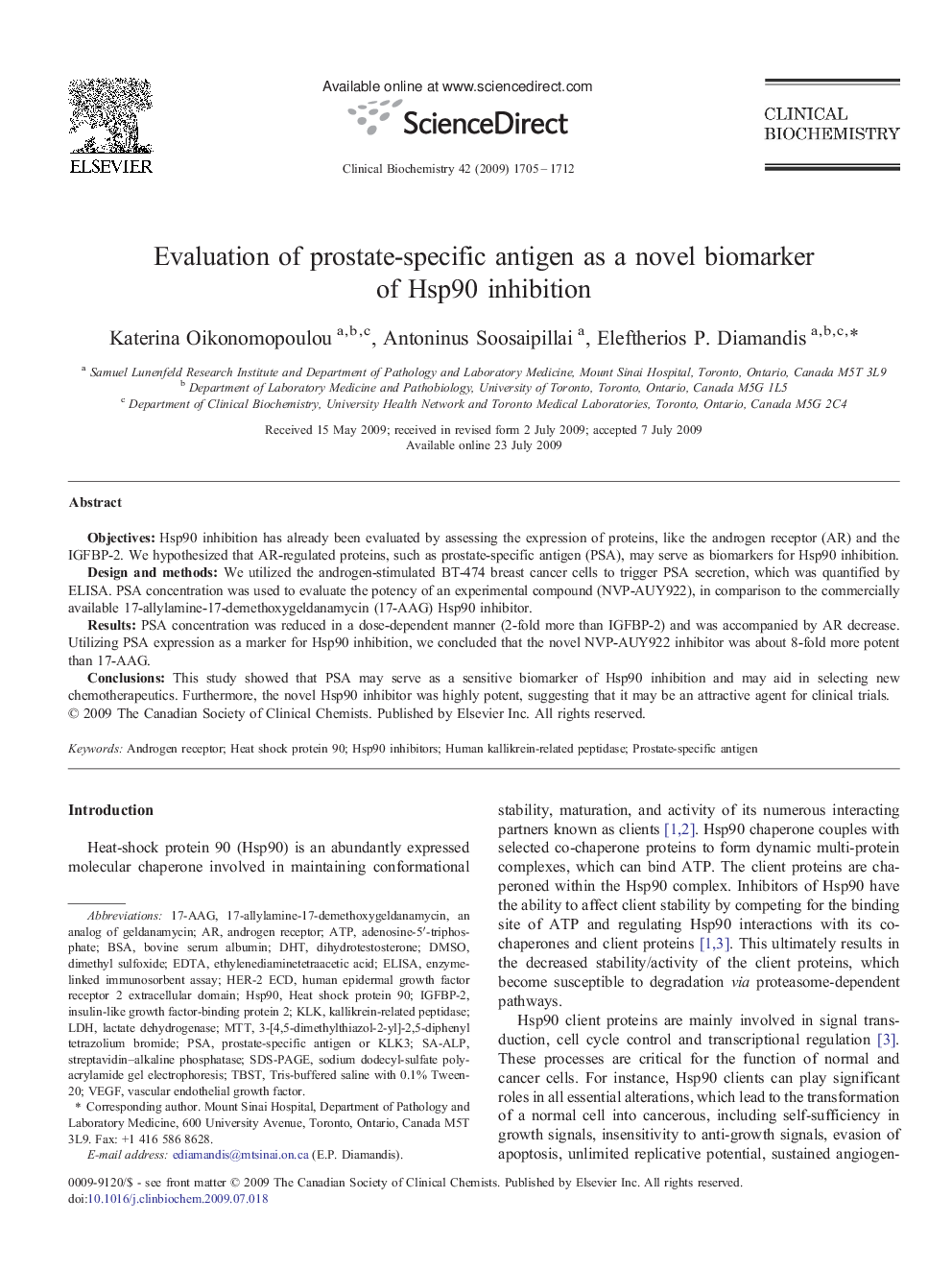| Article ID | Journal | Published Year | Pages | File Type |
|---|---|---|---|---|
| 1970810 | Clinical Biochemistry | 2009 | 8 Pages |
ObjectivesHsp90 inhibition has already been evaluated by assessing the expression of proteins, like the androgen receptor (AR) and the IGFBP-2. We hypothesized that AR-regulated proteins, such as prostate-specific antigen (PSA), may serve as biomarkers for Hsp90 inhibition.Design and methodsWe utilized the androgen-stimulated BT-474 breast cancer cells to trigger PSA secretion, which was quantified by ELISA. PSA concentration was used to evaluate the potency of an experimental compound (NVP-AUY922), in comparison to the commercially available 17-allylamine-17-demethoxygeldanamycin (17-AAG) Hsp90 inhibitor.ResultsPSA concentration was reduced in a dose-dependent manner (2-fold more than IGFBP-2) and was accompanied by AR decrease. Utilizing PSA expression as a marker for Hsp90 inhibition, we concluded that the novel NVP-AUY922 inhibitor was about 8-fold more potent than 17-AAG.ConclusionsThis study showed that PSA may serve as a sensitive biomarker of Hsp90 inhibition and may aid in selecting new chemotherapeutics. Furthermore, the novel Hsp90 inhibitor was highly potent, suggesting that it may be an attractive agent for clinical trials.
